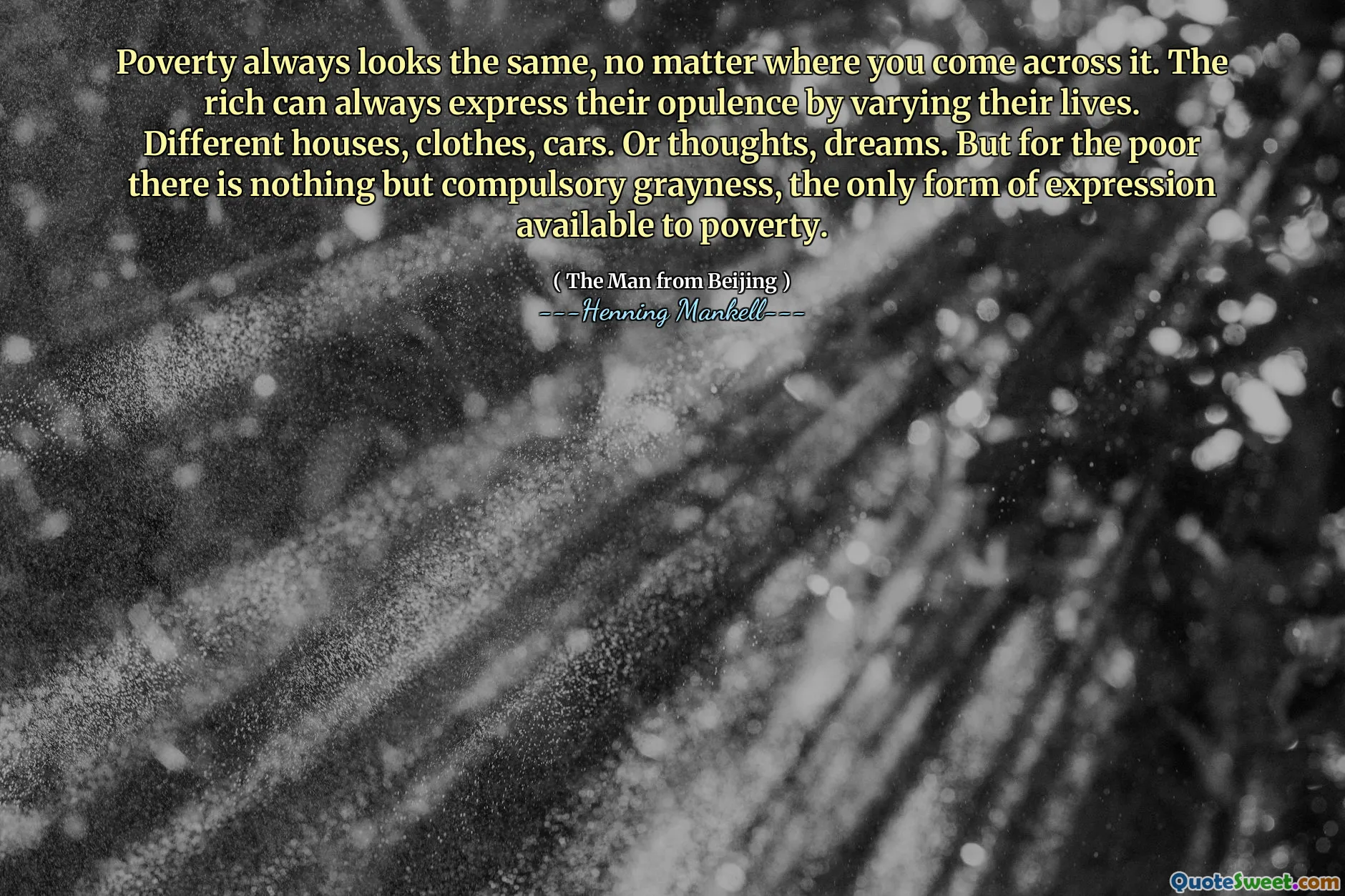
Poverty always looks the same, no matter where you come across it. The rich can always express their opulence by varying their lives. Different houses, clothes, cars. Or thoughts, dreams. But for the poor there is nothing but compulsory grayness, the only form of expression available to poverty.
The quote from Henning Mankell's "The Man from Beijing" reflects on the universal nature of poverty, suggesting that it remains constant regardless of location. Unlike the wealthy who can showcase their affluence through varied lifestyles—such as different homes, fashion choices, and aspirations—the poor are often reduced to a singular experience of hardship and uniformity. This grayness symbolizes a lack of options and expression, depicting a stark contrast to the vibrancy of wealth.
Mankell's assertion highlights the emotional and psychological weight of poverty, emphasizing how limited resources restrict personal expression. While the rich have the privilege of variety and choice in their lives, the poor are bound to a monotonous existence that lacks the ability to reflect individuality or dreams. Thus, poverty becomes not just a condition but a limiting force that stifles creativity and hope.











